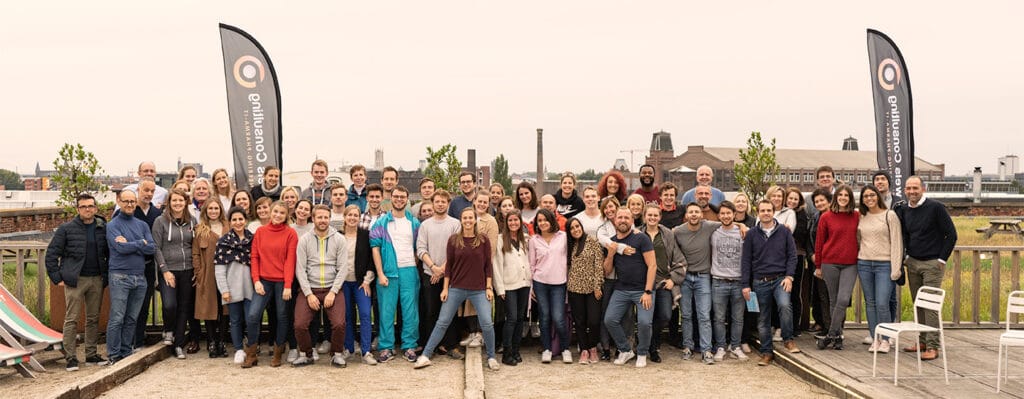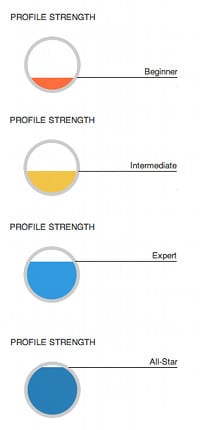Application tips
The job application process in a nutshell
Over the past few months, we have shared tips with you to help you find your ideal job and to increase your chances of success in the different phases of your job application.
These are the topics we covered to help you find & get your dream job:
- How to find your ideal job
- How to improve your written communication
- How to prepare for your job interview
- How to deliver a good job interview
- How to maximize your chances after your interview
In this article, we will summarize the most important tips of the past few weeks.
Stop dreaming and find your dream job. Now!
Many people don’t like their job. Many of us would prefer to do something else. But what would that be? Have you already thought about this? What does your ideal job look like?
There are several ways to define your ideal job. In our article How to define your dream job in 3 easy steps you could read how you can find your ideal job by answering 3 questions:
- What do you want from your job?
- What are your strengths?
- What does the market need?
If you answer these questions, if you prioritize your answers and if you then search for the point where your answers have overlap or show similarities, you will probably have a clear enough picture to start your application process with a clear goal in mind.
For more information on this strategy to identify your ideal job, please read the article How to define your dream job in 3 easy steps.

In our article 21 1/2 Tips for written communication during the application process, we briefly discussed how you can optimize your resume, motivation letter, emails and online identity for a successful application process. We discussed, among other things, that:
- You should always be honest about your knowledge and experience.
- You may want to customize your resume to every single job description.
- You should try to be complete and concise! Nobody likes to read long resumes.
- Everybody is unique. So avoid writing generic motivation letters.
- A job interview is not about you, but about the added value you bring to the table.
- Internet and social media are for public use. Keep an eye on your image and privacy!
For more information on these and other tips to further improve your written communication skills, please refer to our article about written communication during the application process.
3 Questions to rule them all
In our article 3 Questions to prepare for your interview we discussed how you can prepare for your job interview by answering some simple questions:
- Where do you want me to start?
- Who are they, what do they do and where do they want to go?
- Who is sitting on the other side of the table?
You can hardly overestimate the importance of good preparation for your interview. In your preparation, concentrate mainly on the needs of the company and how you can be an added value in meeting those needs.
Again, a job interview is not about you but about finding the most suitable candidate for a particular job! Don’t emphasize on how good you are, but how you well you fit for this specific job! For more tips, please read our tips to prepare for your job interview.
Feeling ready for a job interview?
There is more to it than meets the ear!
The majority of our communication takes place via our body language. During your job interview, nonverbal communication is therefore just as important as verbal communication.
In our article 10 Tips for verbal and nonverbal communication during your job interview, we concentrated on a number of tips for good verbal and nonverbal communication during your job interview. We discussed, among other things, the importance of:
the first eye contact and the first handshake
- physical care and appropriate clothing
- a confident attitude
- a pleasant volume, intonation and rhythm in your voice
- a positive attitude
- brief and complete answers
We also focused on the fact that you probably know more about your future job than the recruiter does. And that this does not imply that you have to explain everything in detail. The recruiter will never be the only person deciding about your application. A content expert will also be involved. So wait patiently for the substantive questions and try not to be the all-knowing professor.
Help the recruiter so he or she can help you!
Even after your job interview, you can further optimize your chances of success. In our article First aid after a job interview, we focused on the fact that the recruiter will become an ally after the job interview. At that point, the evaluation has usually already taken place. If you are considered suitable for the job then the recruiter will do everything to support your candidacy.
Optimize your chances by making the job of the recruiter as simple as possible. Make it easy for him or her to help you. A few tips to survive and thrive after a job interview:
- Make sure you always communicate quickly and accurately.
- Good advice is often mistaken for negative feedback. Embrace good advice!
- Dare to ask questions if you get insufficient feedback.
- Apply like you mean it! Continue to follow the company.
- Stay optimistic! Learn, improve and continue.
Applications are intense experiences. There are often many emotions involved. This may have an amplifying effect but it can also pull you into a downward spiral of doubt. Make sure you learn from every experience. Then you will only get stronger!





 the first eye contact and the first handshake
the first eye contact and the first handshake
 How complete is your profile?
How complete is your profile? 2. Craft an informative headline and mention your industry and location
2. Craft an informative headline and mention your industry and location For example, when a recruiter is asking for additional information, such as a copy of your diplomas, an additional reference or an extra motivation, this will likely be to support your application and not because the recruiter is having doubts about your knowledge or skills.
For example, when a recruiter is asking for additional information, such as a copy of your diplomas, an additional reference or an extra motivation, this will likely be to support your application and not because the recruiter is having doubts about your knowledge or skills. Hello Mr. President?
Hello Mr. President?






